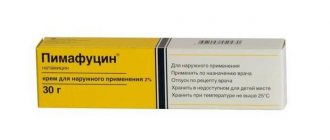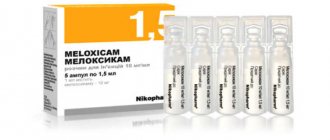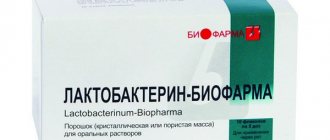Why does white vaginal discharge appear after using Livarol suppositories?
White curdled masses released from the vagina during the use of the drug Livarol are destroyed colonies of pathogenic fungi.
The appearance of these discharges during treatment indicates its effectiveness. Livarol is an antifungal drug that is injected into the vagina to treat vaginal candidiasis (that is, infection of the vagina by pathogenic fungi). As the infection develops, the number of candida in the vagina increases, as a result of which over time they can cover the entire surface of the mucous membrane, taking on the appearance of a white, cheesy coating.
The main method of treating vaginal candidiasis is the intravaginal administration of antifungal agents, such as Livarol suppositories. The active substance of this drug is ketoconazole, which has an antifungal effect (that is, it destroys them upon contact with pathogenic fungi). In addition to ketoconazole, the suppository contains other components that ensure the maintenance of the required form of the drug until it is used.
After insertion into the vagina (the temperature in which can reach 37.5 degrees), the suppository melts, as a result of which the active substance covers a large surface of the mucous membrane and comes into contact with the fungal colonies located on it, which die. Dead colonies of fungi (representing white cheesy masses) are detached from the vaginal mucosa and are released together with the molten substance of the suppository.
After treatment is completed, no fungal colonies remain in the vagina, as a result of which the pathological discharge stops.
List of contraindications
It is very important to read the instructions for use of Livarol for thrush, as it contains a complex of information about contraindications and side effects of the drug. If such manifestations occur, the drug should not be used, and only a doctor can adjust the treatment.
The list of adverse reactions includes:
hyperemia of the vaginal mucosa;
- skin rashes;
- irritation on the mucous membrane;
- itching sensation in the vagina;
- hives;
- manifestation of the gag reflex;
- swelling of the genitals;
- pinkish vaginal discharge;
- onset of dizziness.
The primary task when taking Livarol suppositories is to become familiar with the contraindications.
To prevent disturbances in the body caused by the use of suppositories, you need to know that they cannot be used:
- in the 1st–3rd trimester of pregnancy;
- while breastfeeding;
- children until they reach the age of 12.
It should be borne in mind that the drug is prescribed only by a doctor in compliance with the instructions for use of Livarol suppositories.
Independent use of the product can lead to certain consequences that can undermine your health.
https://youtu.be/WPLQaE8rUPA
What is Livarol
Livarol is an antifungal drug in the form of vaginal suppositories intended to eliminate vaginal infections:
- Treatment of acute, chronic or recurrent forms of thrush
- Prevention of fungal infections in patients who have undergone treatment with antibiotics or other drugs that lower immunity and affect the condition of the vaginal microflora.
The medicinal substance of vaginal suppositories is ketoconazole, an imidazole derivative. Depending on the concentration, it has a fungicidal or fungistatic effect. After penetration into the cellular organism of the fungus, it suppresses the production of vital substances of the pathogen. Under the influence of drugs, the synthesis of ergosterol, triglycides and other compounds stops.
Ketoconazole affects dermatophytes, molds and other fungi. But most importantly, it suppresses candida pathogens - the culprits of vaginal infections.
Indications for use
Livarol suppositories are prescribed for the following diagnoses:
- Acute/chronic vaginal candidiasis;
- Recurrent vaginal candidiasis;
- Preventive measures against fungal infections of the intimate area.
The presence of factors that increase the risk of candidiasis infection is also an indication for the use of the medicine. Therefore, gynecologists often prescribe treatment with Livarol during pregnancy, in the prenatal period, as prophylaxis after surgical interventions.
Who should not be treated with Livarol
Like any medication, Livarol has contraindications. Candles should not be used for:
- The presence of individual hypersensitivity of the body to the constituent components
- 1st trimester of pregnancy
- Children under 12 years of age.
The drug is approved for the treatment of thrush in pregnant women in the 2nd and 3rd trimesters. But in this case, the question of using Livarol should be decided by a gynecologist. The risks to the fetus at these times are minimal. The danger lies in the long-term use of suppositories, as the risk of developing allergic reactions in the body increases, which can adversely affect the health of the unborn child.
Although there is no strict prohibition on treatment with Livarol suppositories for nursing women, they should take into account that if an allergic reaction occurs, it may negatively affect the composition or taste of the milk. It is especially important to take this into account if long-term treatment is ahead. Therefore, it is better to discuss the use of suppositories during lactation with your doctor.
If a woman has vaginal damage, the use of suppositories is not recommended. First, it is necessary to achieve complete healing of open wounds, and only after that begin antifungal therapy.
Side effects of the drug
The list of adverse reactions is small, they are extremely rare and manifest themselves in the form of allergic reactions. Among them:
- itching;
- skin rashes;
- hives;
- burning;
- redness;
- hyperemia of the vaginal mucosa.
If you do not stop taking the medication, you may develop dizziness, nausea, and discharge that is unnatural for this period. To solve the problem, the doctor selects suppositories with another active ingredient. Contraindications for use
Livarol should be avoided if you are allergic to ketoconazole or have an individual intolerance to other additional components of the composition. Suppositories are not prescribed to children under 12 years of age, in the first trimester of pregnancy.
An absolute contraindication is the presence of open wounds in the vagina. This will not only allow ketoconazole to enter the general bloodstream, but will also contribute to the spread of infection.
Mechanism of action of Livarol
The main component of the suppositories is ketoconazole, a substance with antifungal properties. Ketoconazole prevents the synthesis of ergosterol, causing fungi to lose their ability to colonize.
By disrupting the permeability of the cell wall, the antifungal substance blocks the proliferation of yeast-like fungi and dermatophytes. Ketoconazole, which is part of the suppositories, prevents the development of systemic mycoses, therefore it is often included in the complex treatment of fungal diseases.
Local therapy is carried out in uncomplicated cases when the prescription of systemic drugs is irrational:
- In the absence of a pronounced inflammatory process with a violation of the general condition.
- In combination with antifungal therapy.
- In the presence of diseases of the endocrine and digestive systems that affect changes in the microbial landscape of the vagina.
- As a result of hormonal imbalance during pregnancy and premenopause.
- During lactation, when it is necessary to reduce the teratogenic effect of the drug on the fetus.
- When the body's resistance decreases after illness.
- As a result of long-term use of antibacterial, cytostatic and corticosteroid drugs.
- If there are contraindications to the use of systemic antifungal agents.
Composition and pharmaceutical action
Livarol suppositories contain ketoconazole as an active ingredient. This is a substance that has a fairly wide spectrum of action, including against fungi and bacteria. Ketoconazole is included in many antifungal drugs and is most effective as a local remedy against fungus.
Additional substances (base for suppositories) make treatment much more effective:
- give shape and facilitate insertion of the suppository into the vagina;
- reduce the intensity of inflammation;
- soften the mucous membrane;
- promote healing of minor injuries.
The main effect of suppositories is antifungal. They inhibit the proliferation of parasitic fungi, preventing them from spreading. Additional effectiveness is associated with the action of excipients that accelerate the healing process of the skin at the site of inflammation. Thus, the disease gradually disappears, and the vaginal microflora is normalized.
Suppositories provide only a local effect for fungal inflammation of the vagina and labia, but are ineffective against fungal cystitis and more serious diseases. However, in this case they can be used in complex therapy.
Is it possible to have sex during treatment?
During treatment it is not prohibited to have sex, however, there are some precautions. Sexual intercourse must take place before insertion of the suppository. If this happens within the first two hours after administration, then the active substance may negatively affect the condition of the partner’s penis.
Livarol is not compatible with latex drugs, so sex should occur without condoms or contraceptive diaphragms. Otherwise, it is better to postpone sexual intercourse until the end of treatment.
Vaginal – this is common
vagina, which affects 75% of women at least once in their lives.
Causes of candidiasis
The development of the disease is provoked by fungi of the genus Candida, and in more than 95% of cases - Candida albicans, occasionally - other types of Candida (
Candidiasis does not apply. Candida albicans is a common inhabitant of the vagina, but normally does not cause any diseases, since its activity is suppressed by lactobacilli. With a decrease in the protective properties of the body and vaginal flora, candida are activated and multiply intensively, populating the vaginal mucosa and leading to the development of an inflammatory process in it.
The following may contribute to the development of vaginal candidiasis:
- Decreased overall resistance of the body. This can be observed in many acute or chronic diseases, as well as in disorders, lack of sleep, and so on.
- Taking antibacterial drugs (systemically or vaginally in the form of suppositories). destroy all bacteria, including lactobacilli of the vagina, but they do not affect fungi in any way, which promotes the growth and reproduction of the latter.
- Taking oral contraceptives (birth control pills). These drugs contain female sex hormones and change the hormonal levels of the female body, which can contribute to the development of fungal infections.
- Taking cytostatics. These drugs are used to treat tumors and inhibit cell division throughout the body, resulting in a decrease in tension (that is, the ability of the immune system to fight foreign microorganisms).
- Taking glucocorticoids. These drugs are used to treat diseases of the immune system, as well as many acute and chronic inflammatory diseases. Their mechanism of action is associated with suppression of the body's immune system.
- Diabetes. When the general protective properties of the whole body decrease, microcirculation of blood in all organs and tissues deteriorates, which contributes to the addition of infection.
- AIDS (acquired immunodeficiency syndrome). This is a viral disease in which the cells of the immune system are affected (destroyed), as a result of which the tension of the immune system gradually decreases.
- Untreated candidiasis in a pregnant woman. In this case, the child can become infected with fungi during childbirth (while passing through the mother's birth canal).
DETAILS: Synthomycin analog suppositories in gynecology
Symptoms of candidiasis
Symptoms of the disease are caused by the proliferation of pathogenic fungi in the vagina and the development of an inflammatory reaction in response to the introduction of foreign agents into the body tissues.
Vaginal candidiasis can manifest itself:
- Itching and burning in the vagina. These manifestations are associated with the development of the inflammatory process. may intensify at night, after sexual intercourse or after water procedures.
- The appearance of pathological discharge from the vagina. The discharge is white and consists of cheesy masses and mucus.
- Pain during sexual intercourse. Excessively severe pain in the vagina is caused by the development of the inflammatory process and increased sensitivity of the inflamed tissues.
- Pain when urinating. Pain in the vagina is caused by an inflammatory process. At the same time, stabbing and frequent urge to urinate may indicate the spread of an infectious process to the urinary tract.
To make a diagnosis, the vagina is examined using speculum. Upon examination, swollen and inflamed mucous membrane of the vaginal walls, covered with a white cheesy coating, is revealed. To confirm the diagnosis, a microscopic examination is performed (
), as well as sowing secretions on special nutrient media on which it is possible to grow colonies of fungi.
Treatment of candidiasis
Treatment of vaginal candidiasis consists of combating the candida themselves, as well as eliminating the factors that contribute to the development of the disease.
Treatment for candidiasis includes:
- Use, which are inserted into the vagina (in the form of vaginal suppositories or tablets) or taken orally.
- Using local antiseptics (drugs that destroy various types of bacteria and bacteria) to wash the vagina.
- Temporary (for the period of treatment) restriction of the use of birth control pills, antibiotics, glucocorticoids and other medications that contribute to the development of candidiasis. If long-term use of antibacterial drugs is necessary, they should be combined with antifungal tablets.
- Timely and adequate treatment of underlying diseases (such as diabetes).
You can have sex while using Livarol suppositories, but it is not recommended to do this immediately after administering the drug.
Livarol is an antifungal drug that is available in the form of vaginal suppositories and is used to treat vaginal candidiasis (damage to the vaginal mucosa by pathogenic fungi of the genus Candida). For maximum effectiveness, suppositories should be inserted deep into the vagina. A suppository inserted into the vagina melts, as a result of which its active substance (ketoconazole) comes into contact with pathogenic fungi located on the mucous membrane and destroys them.
The antifungal effect of the drug lasts for several hours, as a result of which suppositories should be used once a day (at night before bedtime). If a woman had sexual intercourse before administering the suppository, this will not in any way affect the effectiveness of the treatment or the woman’s health.
The most serious complication in this case may be redness of the mucous membrane of the partner’s penis, caused by the action of a previously administered drug. The development of this phenomenon can be prevented by using condoms, which should be used throughout the entire treatment period (5 - 10 days).
If sexual contact took place during the first hours after administration of the drug, the possible consequences may be more serious. The likelihood of damage to the partner's penis can also be eliminated using a condom, but the effectiveness of the treatment itself in this case will be significantly reduced.
The fact is that during sexual intercourse, mechanical removal of most of the dissolved drug from the surface of the vaginal mucosa occurs. This is also facilitated by increased activity of the vaginal glands. As a result, after the end of the course of treatment, a certain proportion of fungi may survive, which will lead to a relapse (repeated exacerbation) of the disease or its transition to a chronic form.
Thrush is the most common disease in women and occurs at any age. The slightest hormonal imbalance and decreased immunity negatively affects the condition of the reproductive system. Various remedies are used to treat the disease, but the most popular remedy is vaginal suppositories.
The goal of therapy for vaginal candidiasis is to suppress the development of infection and eliminate the causes that caused it.
The complex of medical measures includes:
- Prescription of antifungal drugs (tablets or suppositories) for intravaginal use.
- Therapy with antiseptic drugs for disinfection and cleansing of the vagina from pathogenic microorganisms.
- A temporary ban on the use of contraceptives, antibiotics and other drugs that destroy beneficial microorganisms in the vagina and thereby contribute to the development of thrush.
- Treatment of existing diseases that have a negative impact on the level of immunity.
Livarol: instructions for use of suppositories
Latin name: Livarol ATC code: G01A F11 Active ingredient: Ketoconazole (Russia) Condition of release from the pharmacy: Without a prescription
Livarol is a popular antifungal drug used in gynecology.
Composition of the drug
The active ingredient in one suppository is 400 mg. Other components – base for suppositories (butylated hydroxyanisole, macrogol 1500 and 400).
Medicinal properties
The main component of the drug is ketoconazole, which is a derivative of the organic compound imidazole. The substance has antifungal, fungicidal and fungistatic properties.
The mechanism of its action is to inhibit the formation of ergosterol and other vital compounds for the pathogen’s body. As a result of a lack of nutrients, the structure and permeability of cell walls is disrupted.
The fungi stop forming threads and colonies, and eventually die.
Dermatophytes, yeast-like and mold fungi, and pathogens of mycoses are sensitive to ketoconazole. When administered intravaginally, it is practically not absorbed.
Release forms
Average price in online pharmacies: (5 pcs.) – 472 rubles, (10 pcs.) – 646 rubles.
The drug is produced in the form of suppositories for intravaginal use. Candles are produced in torpedo-shaped shape. They can be white, with a yellowish, grayish or pale brown tint. Some marbling of the surface is not a defect. Suppositories are placed in a cell package of 5 pieces. The pack contains 1 or 2 plates with candles, a description and instructions for use.
Mode of application
If the doctor has not prescribed an individual treatment regimen, then Livarol suppositories are used according to the instructions for use. The drug developers advise inserting suppositories before going to bed. The product is removed from the package and injected as deep as possible into the vagina. The procedure is performed in a supine position. After this, it is recommended not to get up for at least half an hour.
Candles are used one at a time per day. The therapeutic course depends on the diagnosis, but should be at least 3-5 days. In chronic forms of thrush, treatment is extended to 10 days.
To achieve the maximum effect of treatment, it is not recommended to interrupt the course even if the therapy coincides with the menstrual cycle. According to dermatologists, Livarol suppositories during menstruation do not lose their medicinal qualities and have a beneficial effect on the vaginal mucous tissue.
Thanks to the successful composition, the medicine is evenly distributed throughout the mucous membrane, which contributes to a good therapeutic effect of Livarol during menstruation.
During pregnancy and breastfeeding
Although it is known that the systemic absorption of ketoconazole when administered intravaginally is extremely small or absent, there is no data yet to prove the absolute safety of Livarol during pregnancy and lactation.
For this reason, it is not prescribed to expectant mothers in the first trimester. In subsequent periods, the use of vaginal suppositories is allowed.
But only the attending doctor can determine the need for their use and prescribe them for therapy after analyzing the balance of benefit and harm for the unborn child. It is not recommended to use them on your own.
It is advisable for nursing mothers to interrupt lactation if Livarol suppository therapy is prescribed for thrush.
Precautionary measures
When starting treatment with the vaginal drug Livarol, one must take into account the possible undesirable consequences of therapy for the sexual partner. If a couple practices unprotected sex, the man may develop an allergic reaction to the medicine in the form of penile hyperemia.
To minimize the risk of the infection returning, it is recommended that both sexual partners undergo simultaneous antifungal therapy.
During treatment with Livarol suppositories, it is necessary to exclude alcohol and alcohol-containing medications - such compatibility can provoke unforeseen consequences.
Ketoconazole and ethanol are antagonists. As a result of taking alcohol, a significant reduction or complete neutralization of the effect of the active substance may occur.
As a result, the infection will become resistant to the drug, and further therapy will be more difficult.
Cross-drug interactions
There is no data on the negative consequences of using Livarol simultaneously with other medications. Considering that the therapeutic substance of the drug ketoconazole has an extremely low resorption capacity, any undesirable reactions are unlikely.
It was only noticed that when combining the drug with the anti-tuberculosis antibiotics Rifampicin and Isoniazid, the concentration of the main substance Livarol decreases.
The active component ketoconazole has the ability to increase the plasma levels of drugs such as Cyclosporine, indirect anticoagulants and methylprednisolone. Therefore, if it is necessary to use these medications and Livarol, you should consult a doctor on how to prevent undesirable consequences and a decrease in the therapeutic effect.
Conditions and shelf life
The shelf life of vaginal suppositories is two years from the date of issue. To avoid loss of medicinal properties, the drug should be kept in a place away from light and sources of moisture. Temperature during storage – up to 25 °C. Keep away from children!
Vagisept
"FIRN M" (Russia)
Average cost: No. 10 – 312 rubles.
A domestic antifungal drug, the action of which is determined by two main components - metronidazole and fluconazole. The first substance has a powerful antimicrobial effect, the second suppresses fungal infection.
Thanks to the combination of two strong ingredients, the medicine neutralizes most pathogenic microorganisms. As part of a vaginal product, it fights candidal infections. It is prescribed for vaginitis of various etiologies.
Available in the form of vaginal suppositories. Treatment method: one suppository for 10 days. If necessary, the course is extended.
Pros:
- Combined action
- Good effect.
Flaws:
- Compatibility with other drugs must be taken into account.
Lomexin
Catalent Italy, SpA (Italy)
Price:
- cream (78 g) – 487 rub.
- capsules: 600 mg (2 pcs.) – 474 rubles, 1000 mg (1 pcs.) – 430 rubles.
Antifungal agent for the treatment of vaginal trichomoniasis and genital candidiasis.
The active substance of the drug is fenticonazole. The component is a synthetic derivative of the natural substance imidazole. Suppresses the spread of pathogenic microorganisms or destroys them. Acts against yeast and yeast-like fungi, candidal fungi, staphylococci and streptococci. Also has antimicrobial and anti-inflammatory properties.
The antifungal drug has several dosage forms: cream and vaginal capsules. fenticonazole – 2 g per 100 g ointment. Capsules are produced with different concentrations of the active substance - 200, 600 or 1000 mg in one pill.
Candles should not be used by pregnant, nursing or children. It is also not recommended to use them during menstruation.
Suppositories are administered once a day - before bedtime. Repeated use is possible only after a three-day break, for trichomoniasis - every other day.
Vaginal cream is injected into the vagina (about 5 g) once a day - before going to bed. If necessary, the number of procedures is increased to two. The treatment course is carried out until the manifestation of the disease completely disappears - as a rule, this takes 3-6 days.
Pros:
- Good effect
- Easy to use capsules.
Flaws:
- Not very convenient to use the cream
- The price is high.
Use of the drug in gynecology
Livarol suppositories for thrush are prescribed for the following pathologies:
- For vulvovaginal candidiasis (inflammation of the vaginal walls and skin of the labia). In this case, they are the main means for treating the disease.
- For candidal cystitis and endometritis, suppositories are prescribed as part of complex therapy along with systemic medications.
- Can be used to prevent candidiasis during long-term treatment with antibiotics or glucocorticosteroids.
- For chronic and recurrent candidiasis, suppositories are used to relieve exacerbation. In this case, the drug is an element of complex therapy, since fighting the fungus in the vaginal area is not enough.
DETAILS: Diet table No. 8 for obesity, menu for the week
Livarol can also be used as a prophylactic for candidiasis in other areas of the body to prevent the infection from spreading to the genitals.
Livarol is a suppository for thrush; they are inserted into the vagina and dissolve there, providing a local effect.
Mode of application:
- Before inserting the suppository, it is necessary to thoroughly wash the genitals and wipe the perineum dry.
- Then you need to lie on your side and insert the candle with the pointed end forward.
The candle will dissolve on its own in a few minutes. The instructions recommend lying down for about an hour after the procedure so that the active substance is completely absorbed. Therefore, it is most convenient to use the drug in the evening before bedtime.
The dosage of the drug depends on the purpose of its administration:
- To treat acute candidiasis, the suppository is administered every day at night for 5 days.
- If candidiasis is chronic or recurrent, the duration of the course increases to 10 days.
- The preventive course lasts 5 days, begins the day after the end of menstruation, and is repeated monthly if necessary.
It should be noted that when Livarol suppositories are prescribed for thrush, the instructions do not recommend use during menstruation, since then their effectiveness is much lower - the active substance is partially lost along with menstrual flow.
It is better to use the drug in the evening rather than in the morning - then the loss of the active substance along with secretions when walking and running is excluded.
In addition, in the morning the patient may not have time to lie down for the required hour after the procedure.
An overdose of Livarol was not observed in clinical trials. There are indications that when several suppositories are administered in a row, discomfort occurs in the vaginal area and a severe allergic reaction is possible. These phenomena pass on their own and quite quickly.
The use of suppositories in girls under 12 years of age is not recommended. There is no reliable data on the danger or safety of such treatment. Livarol can be prescribed to children only if there is laboratory confirmation of the diagnosis of genital tract candidiasis.
Under no circumstances should the drug be used in girls without a doctor's prescription.
Livarol suppositories are recommended to be used only after consulting a doctor and making a correct diagnosis.
The active substance of the drug Livarol is an antifungal drug for
. It is ketoconazole that has a therapeutic effect against candidiasis. Also, each Livarol suppository contains other excipients in certain concentrations.
The excipients of the drug Livarol include:
- Butylated hydroxyanisole is a wax-like substance that has antioxidant properties (reduces tissue damage at the site of inflammation).
- Macrogol is a base for suppositories (suppositories), used to give them the required shape and size.
In addition to livarol, other drugs that include ketoconazole can be used to treat vaginal candidiasis.
Analogs of the drug Livarol
| Company manufacturer | Manufacturer country | Drug name | Release form |
| Altfarm | Russia | Ketoconazole-altpharm | Vaginal suppositories 400 mg (each suppository contains 400 mg of ketoconazole). |
| Sperko Ukraine | Ukraine | Ketodin | |
| Monfarm | Ketoconazole-Pharmex | ||
| Monfarm | Livagin-M | ||
| Lekhim | Ketoconazole-Lx | ||
| Pharmaprim | The Republic of Moldova | Ketoconazole |
The antifungal effect of the drug livarol is provided by the active substance ketoconazole. After insertion into the vagina, the suppository melts at body temperature, and its substance evenly covers the entire mucous membrane. Ketoconazole penetrates the surface membranes of pathogenic fungi and inhibits the synthesis of the substance ergosterol in them.
When introduced into the vagina, livarol has:
- Fungistatic effect – slows down the process of growth and reproduction of pathogenic fungi.
- Fungicidal effect - destroys pathogenic fungi already present in the vagina.
Since ergosterol is absent in the cell membranes of the human body, ketoconazole does not have any effect on them.
Livarol belongs to the antimycotic (antifungal) agents. Its main active ingredient, ketoconazole, is active against several types of fungi that attack the vagina. One suppository contains 400 mg of this component. Auxiliary components accelerate the penetration of the antifungal agent into the vaginal mucosa. These include:
- butyloxyanisole,
- Macrogol (polyethylene oxide base).
The product is produced only in the form of vaginal suppositories. One package includes 5 or 10 candles. Each of them is torpedo-shaped. The color is white with different shades - creamy, grayish or yellowish.
The place where the medicine is stored should be dry, dark and inaccessible to children. Temperature up to 25°C. Has a two-year validity period.
Indications
Livarol suppositories are widely used in gynecology for the treatment of:
- vaginal candidiasis (thrush) in acute and chronic forms,
- mixed infections (fungal-streptococcal and fungal-staphylococcal),
- disruption of the vaginal microflora for various reasons, including pregnancy.
To prevent fungal infections, the drug is prescribed:
- during long-term treatment with antibacterial agents,
- after an infectious disease that has weakened the immune system.
To treat thrush, Livarol suppositories must be inserted into the vagina once a day, at night, preferably before bed.
Duration of treatment is from 3 to 5 days. Chronic recurrent thrush is treated longer - about 10 days.
For pregnant and lactating women, the dosage is not reduced and the course duration is not shortened.
The manufacturer of the drug warns that the treatment course cannot be interrupted independently even if the symptoms of a fungal infection disappear. An untreated disease is dangerous due to its transition to a chronic stage with relapse, which is difficult to cure.
To prevent re-infection, simultaneous treatment of candidiasis with ointment or cream in a sexual partner is required.
The main advantage of Livarol suppositories is their local action with a minimum of systemic effects. That is, the medicinal composition manifests its activity directly in the affected area - the mucous membrane of the vagina and vulva, where it suppresses the activity of a fungus such as Candida. This effect is obtained by blocking the biosynthesis of components from which fungal cells build their membranes.
DETAILS: Plasmapheresis indications in gynecology
The substance is almost not absorbed into the blood and has no effect on the rest of the body.
Many pathogens of fungal infections are sensitive to ketoconazole. These include mushrooms:
- dermatophytes (trichophytes, epidermophytes, microspores),
- yeast fungi (pytyrospora, candida).
The active substance also “works” as an antibiotic, attacking staphylococci and streptococci.
Often the disease is caused not only by the fungi themselves, but also by fungal-bacterial associations. In this situation, ketoconazole replaces two drugs at once: antifungal and antibacterial.
The polyethylene oxide base included in the drug dissolves inside the body. Enveloping the mucous membrane, it helps the main active substance (ketoconazole) to be distributed evenly. At the same time, the mucous membrane is cleared of pathological fluid.
Contraindications
There are practically no contraindications for this drug. The exception is cases of an allergic reaction to ketoconazole or other components of the suppositories in the form of urticaria and skin rash. If present, the medicine should be discontinued.
If thrush has developed, then suppositories should be used carefully when:
- breastfeeding (possibly as prescribed by a gynecologist);
- under 12 years of age.
Although during intravaginal use a minimal amount of the active substance enters the bloodstream, the drug is contraindicated during pregnancy.
It has been proven that ketoconazole inhibits the synthesis of sex hormones in the embryo and can affect the formation of sexual characteristics, therefore the drug is prohibited in the first trimester.
In the 2nd and 3rd trimesters it can be used after discussion with your doctor.
During menstruation, pills are recommended.
Side effects
There are also very few of them. Very rarely, a local reaction may occur - irritation of the mucous membrane. It is accompanied by redness, itching and swelling.
In exceptional situations, dizziness, nausea and pink vaginal discharge may occur.
In these cases, candles are canceled.
There is no information in the instructions about undesirable interactions between Livarol and other medications.
When treating developing thrush, which is accompanied by pain and burning when urinating, the course of treatment usually does not exceed 1-3 days. Livarol suppositories are inserted into the vagina in a lying position. It is better to do such procedures before bedtime, because you cannot get up after inserting the suppository.
The acute stage of candidiasis is accompanied by pain in the lower abdomen, severe itching and swelling of the genitals, and copious curdled discharge with a sour, unpleasant odor. The course of treatment is 3–5 days. Suppositories are also administered at night, following the instructions.
The chronic stage of thrush requires longer treatment. Typically, a ten-day course helps get rid of fungal infections with complete restoration of the vaginal microflora.
During pregnancy, Livarol can only be used after consulting a doctor.
Treatment with Livarol is effective for the following diseases:
- acute stage of thrush or mycosis;
- chronic stage of thrush or mycosis;
- fungal infection with the addition of streptococcus or staphylococcus;
- prevention of the formation of vaginal candidiasis due to hypothermia, taking antibiotics and other factors that lower immunity;
- disruption of the normal vaginal microflora with the risk of candidiasis.
Features and limitations of use
An overdose of Livarol was not observed in clinical trials. There are indications that when several suppositories are administered in a row, discomfort occurs in the vaginal area and a severe allergic reaction is possible. These phenomena pass on their own and quite quickly.
The use of suppositories in girls under 12 years of age is not recommended. There is no reliable data on the danger or safety of such treatment. Livarol can be prescribed to children only if there is laboratory confirmation of the diagnosis of genital tract candidiasis.
Under no circumstances should the drug be used in girls without a doctor's prescription.
Reasons for the development of thrush
Thrush (or vaginal candidiasis) is a common infectious disease that almost every woman has encountered. According to medical data, the disease affects 75-80% of the fairer sex.
The disease is caused by fungi of the genus Candida. The developed pathology is not contagious and is not sexually transmitted. These microorganisms are present in the reproductive system of every female. In a normal state of immunity, fungi usually do not manifest themselves, since their increased reproduction is controlled by special lactobacilli present in the vagina and providing the necessary acidic environment.
But as soon as a malfunction occurs in the microflora, and beneficial organisms reduce their activity, the acidity in the organ decreases. The more the pH approaches neutral values, the more favorable the conditions become for the proliferation of candida. They begin to multiply rapidly, penetrating the mucous membrane and causing an inflammatory process in the vagina.
The reasons for the development of thrush are:
- Decreased immunity of the body due to illness, poor lifestyle, lack of hygiene and other factors.
- Antibiotic therapy. The use of strong antibacterial drugs helps to destroy not only pathogenic, but also beneficial lactobacilli. And since antibiotics do not affect fungi, they receive excellent conditions for reproduction.
- Contraceptives, due to the sex hormones they contain, change the hormonal levels in the female body, which can cause infection.
- Cytostatic drugs: suppress the division of body cells, reducing immunity.
- Glucocorticoids: a side effect of drugs is a decrease in the body's defenses.
- Diabetes. A person with this disease has reduced immunity and has circulatory problems. As a result of insufficient supply of cells and tissues with useful substances, favorable conditions are created for the development of infection.
- AIDS: extremely low levels of immunity contribute to the active spread of pathogens.
- Untreated thrush in a pregnant woman. In addition to the consequences for women's health, the infection is transmitted to the child during childbirth.
Cheap analogues of suppositories and tablets
The main cheap analogues of Livarol in the form of suppositories with a similar effect and the same composition include the drug Ketoconazole.
Drugs with a similar effect that actively combat the manifestations of thrush include Klion-D, Micoket, Gino-Pevaril, Pimafucin, Candide, Metrogyl Plus, Clotrimazole, Oronazole, Ginalgin, Sertaconazole, Ovulum, Lomexin, Fluomizin suppositories, etc.
The cost of analogues is not much different from Livarol and is about 400 rubles.
After therapy with Livarol, it is necessary to do confirmatory tests.
Dosage
The duration of treatment and dosage of the drug depend on the nature and complexity of the pathology. When treating acute vaginal candidiasis, it is necessary to administer 1 suppository per day for 5 days.
If the patient suffers from chronic or recurrent thrush, then it is necessary to use 1 suppository once a day for no more than 10 days. Suppositories can be prescribed to prevent diseases such as thrush. In such a situation, you need to administer the drug into the vagina, 1 suppository immediately after the end of menstruation for 5 days. If indicated, the course of such preventive treatment can be repeated after a month.











